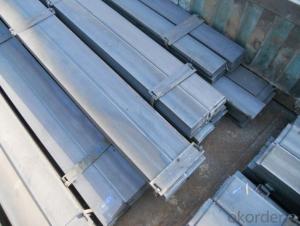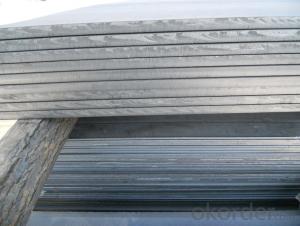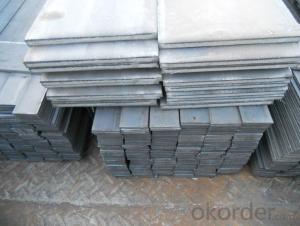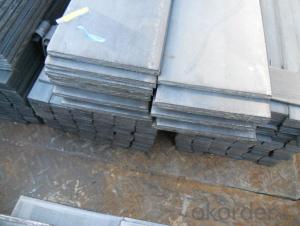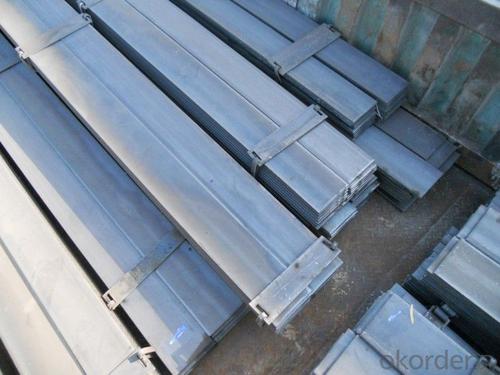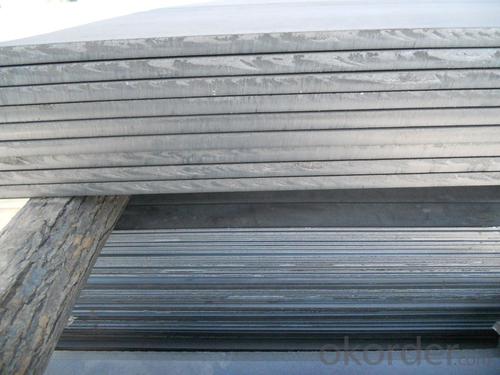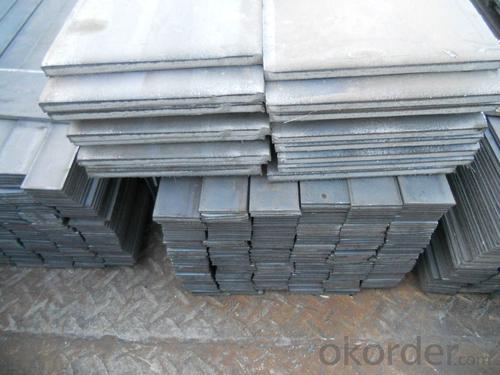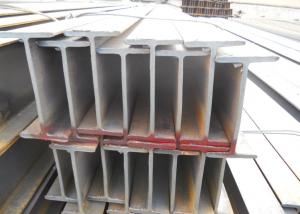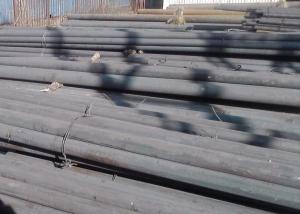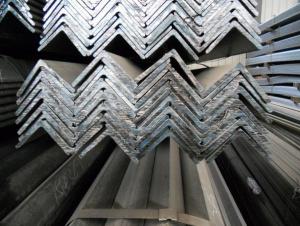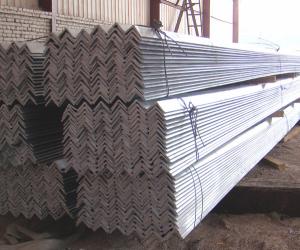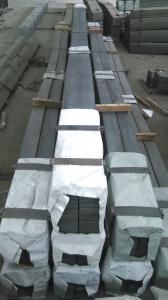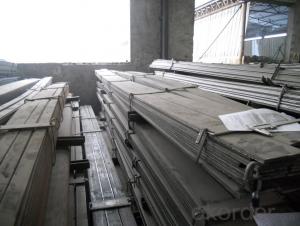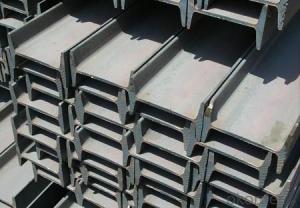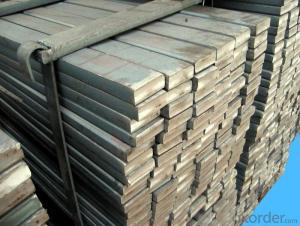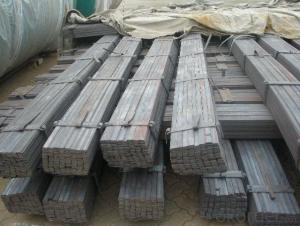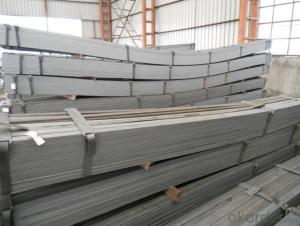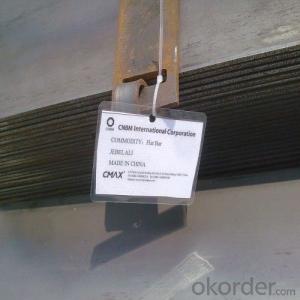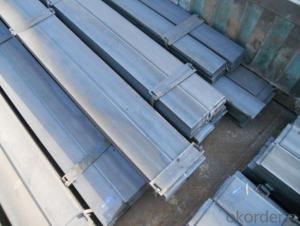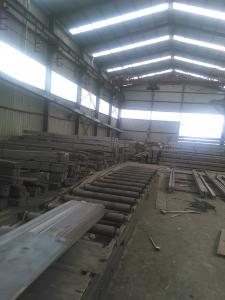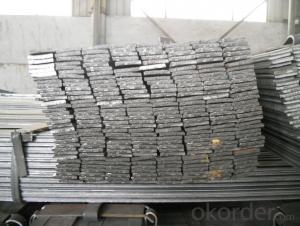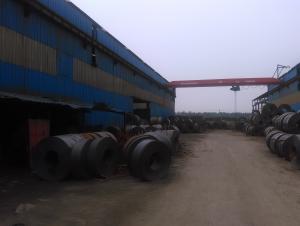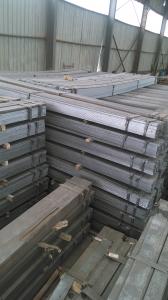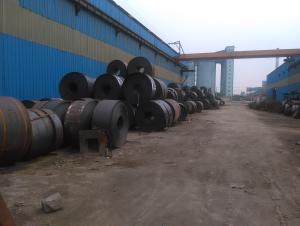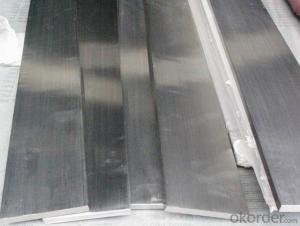Hot Rolled Seel Flat Bars Of Material Grade Q235 And Q255
- Loading Port:
- Tianjin
- Payment Terms:
- TT OR LC
- Min Order Qty:
- 25 m.t.
- Supply Capability:
- 1000 m.t./month
OKorder Service Pledge
OKorder Financial Service
You Might Also Like
Product Description:
OKorder is offering high quality Flat Bar at great prices with worldwide shipping. Our supplier is a world-class manufacturer of steel, with our products utilized the world over. OKorder annually supplies products to European, North American and Asian markets. We provide quotations within 24 hours of receiving an inquiry and guarantee competitive prices.
Product Applications:
Flat Bars are ideal for structural applications and are widely used in the construction of buildings and bridges, and the manufacturing, petrochemical, and transportation industries.
Product Advantages:
OKorder's Flats Barare durable, strong, and resist corrosion.
Main Product Features:
· Premium quality
· Prompt delivery & seaworthy packing (30 days after receiving deposit)
· Corrosion resistance
· Can be recycled and reused
· Mill test certification
· Professional Service
· Competitive pricing
Product Specifications:
Manufacture: Hot Rolled
Grade: Q195 – 235
Certificates: ISO, SGS, BV, CIQ
Length: 6m – 12m, as per customer request
Packaging: Export packing, nude packing, bundled
Chemical composition of Q235
Alloy No | Grade | Element(%) | ||||
C
| Mn
| S
| P
| Si
| ||
Q235
|
B
|
0.12—0.20 |
0.3—0.7 |
≤0.045 |
≤0.045
|
≤0.3
|
Physical properties of Q235
Alloy No | Grade | Yielding strength point(Mpa) | Tensile strength (Mpa) | Elongation after fracture(%) | ||||||
Thickness (mm) | Thickness (mm) | |||||||||
≤16 | >16--40 | >40--60 | >60--100 | ≤16 | >16--40 | >40--60 | >60--100 | |||
≥ | ≥ | |||||||||
Q235 |
B |
235 |
225 |
215 |
205 |
375--500 |
26 |
25 |
24 |
23 |
FAQ:
Q1: How soon can we receive the product after purchase?
A1: Within three days of placing an order, we will begin production. The specific shipping date is dependent upon international and government factors, but is typically 7 to 10 workdays.
Q2: How do we guarantee the quality of our products?
A2: We have established an advanced quality management system which conducts strict quality tests at every step, from raw materials to the final product. At the same time, we provide extensive follow-up service assurances as required.
Q3: The products are invoicing on theoritical weight or on actual weight basis ?
A3: We can do it in both manners, according to buyers' requiremnet.
Q4: Why buy Materials & Equipment from OKorder.com?
A4: All products offered byOKorder.com are carefully selected from China's most reliable manufacturing enterprises. Through its ISO certifications, OKorder.com adheres to the highest standards and a commitment to supply chain safety and customer satisfaction.
Images:
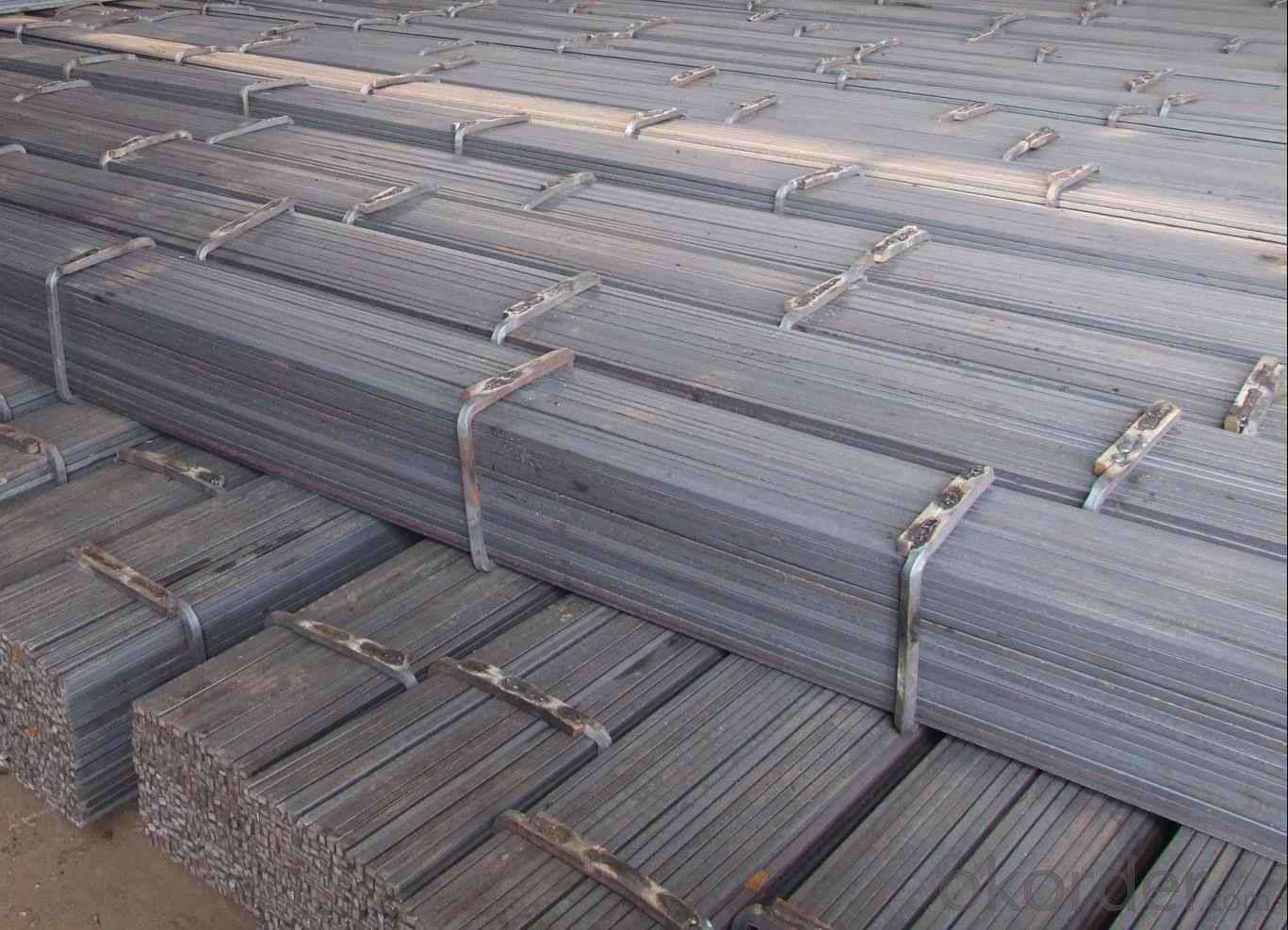
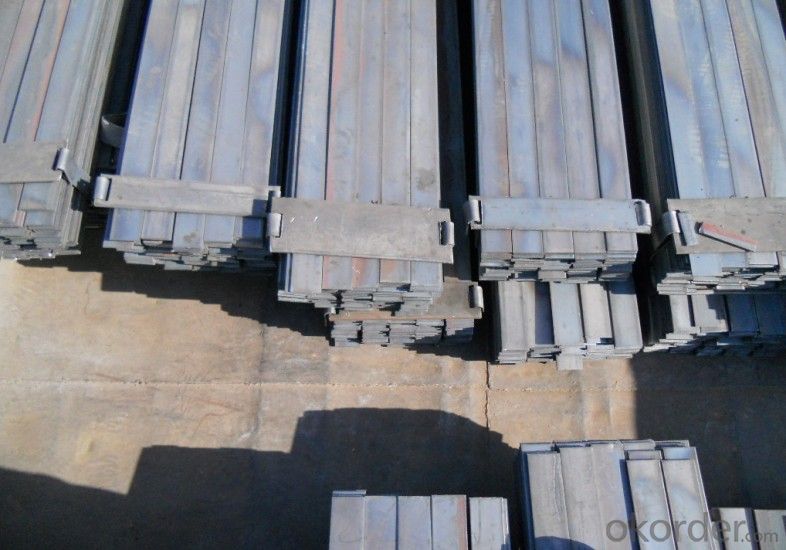
- Q: How is the thickness of a steel flat bar measured?
- The thickness of a steel flat bar is typically measured using a caliper or a micrometer. These measuring tools are designed to accurately determine the thickness of objects by measuring the distance between two opposite sides. To measure the thickness of a steel flat bar, one would simply place the caliper or micrometer jaws on either side of the bar and tighten them until they firmly grip the surface. The measurement can then be read from the tool's display or scale, providing an accurate reading of the bar's thickness. It is important to ensure that the measuring tool is properly calibrated and that the jaws are perpendicular to the surface of the bar to obtain an accurate measurement.
- Q: Can steel flat bars be used for making conveyors or material handling systems?
- Yes, steel flat bars can be used for making conveyors or material handling systems. Steel flat bars are commonly used in the construction of conveyor systems due to their strength, durability, and ability to handle heavy loads. They provide a stable and reliable base for the conveyors and are easily customizable to fit specific requirements.
- Q: Can steel flat bars be used for making frames or supports for signage?
- Yes, steel flat bars can be used for making frames or supports for signage. Steel flat bars are strong, durable, and versatile, making them suitable for constructing sturdy frames or supports to hold signage in place.
- Q: Are steel flat bars available in custom sizes?
- Indeed, custom-sized steel flat bars can be obtained. Although standard sizes of steel flat bars are readily available in the market, numerous suppliers and manufacturers provide the opportunity to personalize the dimensions of flat bars according to specific demands. This grants customers the ability to acquire steel flat bars that are perfectly suited for their particular project requirements, whether it entails a distinct length, width, or thickness. The customization of steel flat bar sizes guarantees an accurate fit and maximum efficiency for a wide range of applications, encompassing construction, manufacturing, and fabrication.
- Q: Are steel flat bars suitable for making toolboxes?
- Indeed, toolboxes can be constructed using steel flat bars. Steel, being a material that is both durable and strong, is well-suited for this purpose, as it allows the toolboxes to endure heavy loads while effectively safeguarding the tools. By conveniently welding steel flat bars together, a robust and dependable structure for the toolbox can be effortlessly formed. Furthermore, the corrosion resistance of steel proves advantageous, particularly for toolboxes that may encounter moisture or harsh surroundings. In summary, the utilization of steel flat bars is a dependable and pragmatic option when crafting toolboxes.
- Q: What are the standard dimensions of steel flat bars?
- The standard dimensions of steel flat bars vary depending on the industry and application. However, there are some common sizes that are widely used. In general, steel flat bars are available in widths ranging from 10mm to 300mm, and thicknesses ranging from 3mm to 25mm. Lengths can vary, but are typically around 6 meters. These dimensions are commonly used in construction, manufacturing, and structural applications. It is important to note that these are general guidelines, and specific dimensions may vary based on regional standards and individual supplier capabilities.
- Q: Can steel flat bars be used in the construction of pipelines?
- Yes, steel flat bars can be used in the construction of pipelines. Steel flat bars are commonly used in various industries, including construction, due to their strength, durability, and versatility. In pipeline construction, steel flat bars are often used as supports, brackets, or reinforcement in the pipeline structure. They can also be used as a base for pipe hangers or to provide additional strength and stability to the overall pipeline system. Additionally, steel flat bars can be welded or bolted together to create custom fittings or connections in the pipeline. Overall, steel flat bars are a reliable and cost-effective choice for use in pipeline construction.
- Q: Are steel flat bars suitable for fabrication of machinery parts?
- Yes, steel flat bars are suitable for the fabrication of machinery parts. Steel is a strong and durable material that is commonly used in the manufacturing and construction industries. Steel flat bars provide stability and support, making them ideal for creating various components of machinery. They can be easily cut, welded, and shaped to meet specific design requirements. Additionally, steel flat bars have excellent mechanical properties, such as high tensile strength and good ductility, which ensure the longevity and reliability of machinery parts. Overall, steel flat bars are a popular choice for fabricating machinery parts due to their strength, versatility, and ability to withstand heavy loads and harsh environments.
- Q: Can steel flat bars be used for creating shelving or storage systems?
- Yes, steel flat bars can be used for creating shelving or storage systems. Steel flat bars are commonly used in construction and industrial applications due to their strength and durability. They can be easily welded or bolted together to create sturdy shelving structures, providing an efficient and reliable storage solution.
- Q: Do lightning protection, lead out of the galvanized round steel, flat steel needs to be inspected?
- When you buy hot galvanized round steel and flat steel, please provide inspection documents. In addition, in the procurement of materials must be explained that hot galvanizing, or else the business to provide you with cold plating will not work; there is a certain price gap between the two.
Send your message to us
Hot Rolled Seel Flat Bars Of Material Grade Q235 And Q255
- Loading Port:
- Tianjin
- Payment Terms:
- TT OR LC
- Min Order Qty:
- 25 m.t.
- Supply Capability:
- 1000 m.t./month
OKorder Service Pledge
OKorder Financial Service
Similar products
Hot products
Hot Searches
Related keywords
